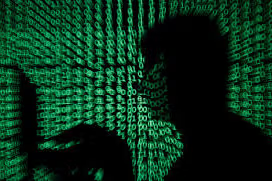The article said that while the UK Treasury is investigating nine suspected violations of sanctions in 2024, “these sanctions violations are of course concerning, but only constitute a small part of Iran’s clandestine political influence and illicit finance operations in Britain.” The campaign, it said, reflects a longer-standing effort by Tehran to undermine the United Kingdom in response to decades of hostility between the two governments.
Historical context and anti-UK messaging
Tensions between the two countries go back decades, and The Telegraph noted that Iran has consistently framed the United Kingdom as a hostile power.
According to the report, this messaging forms part of a larger strategy aimed at undermining states perceived as adversaries, particularly those aligned with the United States.
Iran-linked media and advocacy in Britain
Press TV, Iran’s state-backed English-language broadcaster, previously held a broadcast license to operate in the UK. The Telegraph said that although the license was revoked in 2012, the channel continues to publish content online that promotes Iranian state positions.
The report also referenced UK-based organizations, including the Islamic Human Rights Commission, which has faced scrutiny for its messaging and continues to organize Quds Day demonstrations in central London. The Telegraph said some of these events included visible support for Hezbollah before the group was designated a terrorist organization in the UK.
Concerns over Iranian banks in London
Iranian financial institutions with past sanctions histories, including Melli Bank and Bank Saderat, still maintain offices in London, The Telegraph said. It noted that these banks operate near the Bank of England and have been raised as a concern by Members of Parliament.
According to the report, both institutions have previously been linked by international authorities to financial activities involving armed groups in the Middle East.
Online disinformation tied to Iran
Iranian influence efforts have also extended to social media, according to The Times. The paper reported that OpenAI identified a network called Storm-2035, which it said was likely linked to Tehran. The network used Persian-language prompts to generate English and Spanish posts on wedge issues, such as austerity, independence movements, and foreign policy.
OpenAI said the content was posted on X by accounts posing as local users. These accounts often used stock images and followed far more users than they had followers.
Scottish independence messaging monitored
The Telegraph also referenced Iranian involvement in online messaging around Scottish independence, citing researchers who linked the activity to broader attempts to exploit domestic divisions in the UK.
According to The Times and Scottish Daily Express, several pro-independence X accounts with apparent Iranian ties went silent after Israeli strikes on Iranian infrastructure on June 12. The Scottish Daily Express cited research from Clemson University suggesting the network may have been tied to the Islamic Revolutionary Guard Corps.
Government response limited, Telegraph says
While UK authorities have taken some action, The Telegraph said responses have so far not matched the scale of the challenge. The paper described Iran’s operations as “enabled by years of dereliction from policymakers” and said more sustained coordination would be needed to counter foreign influence campaigns effectively.








